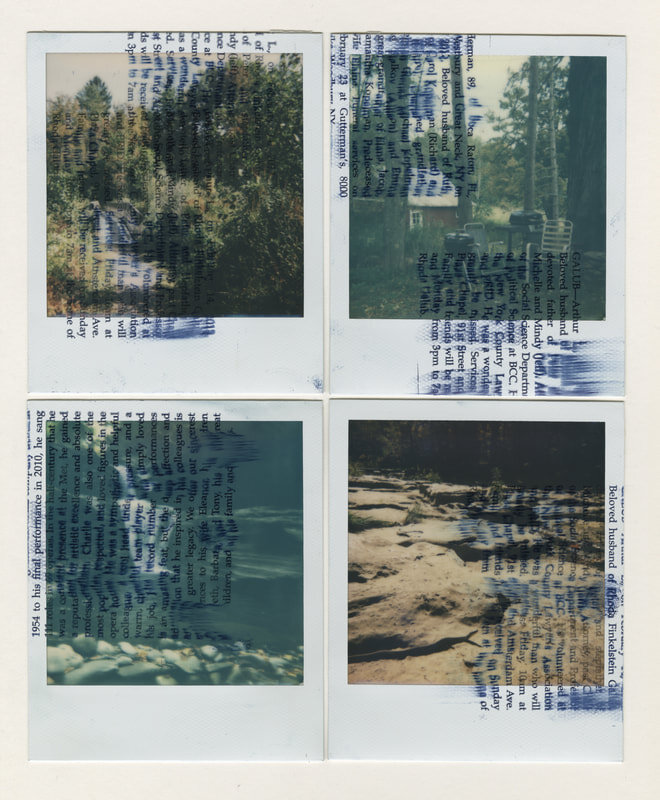
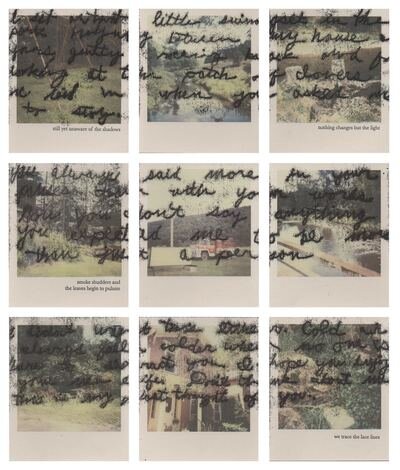
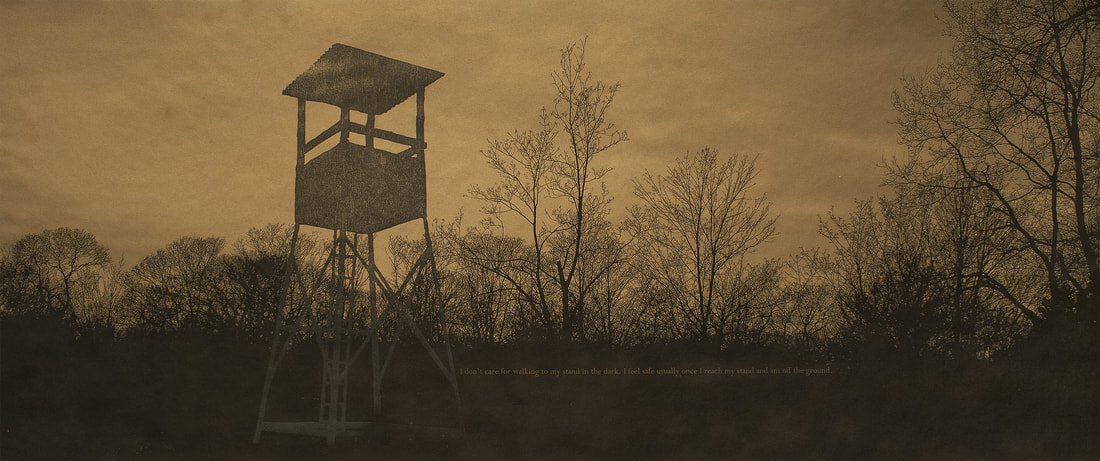
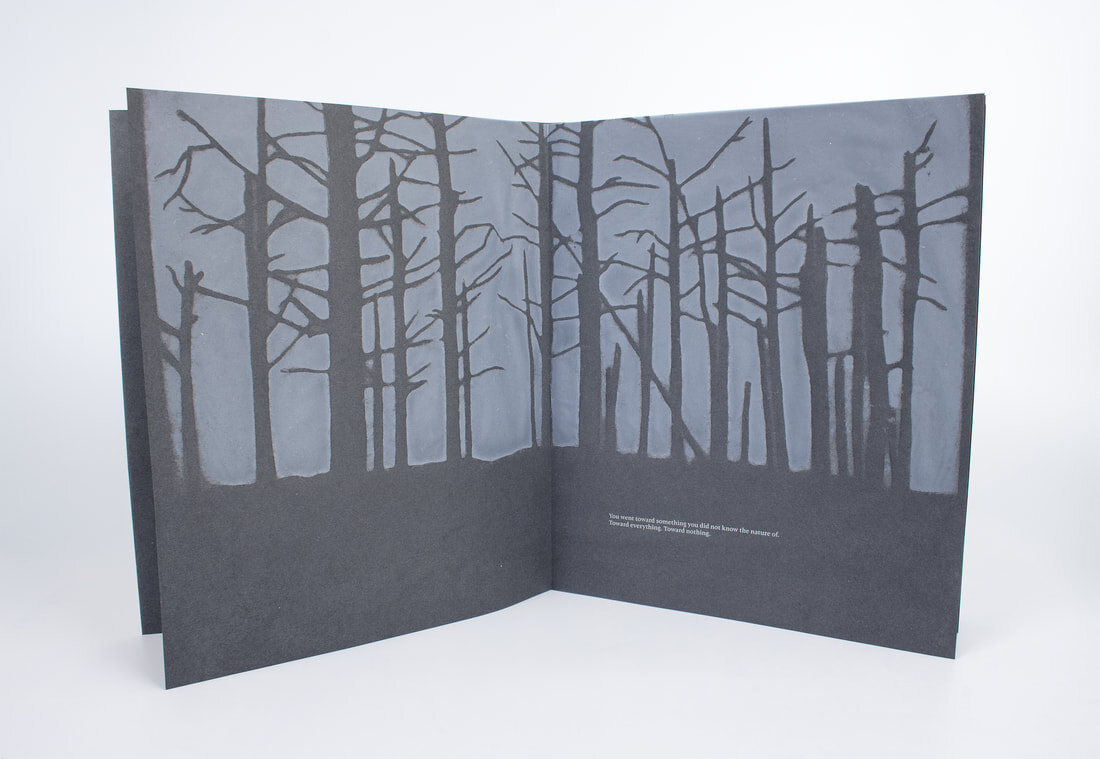
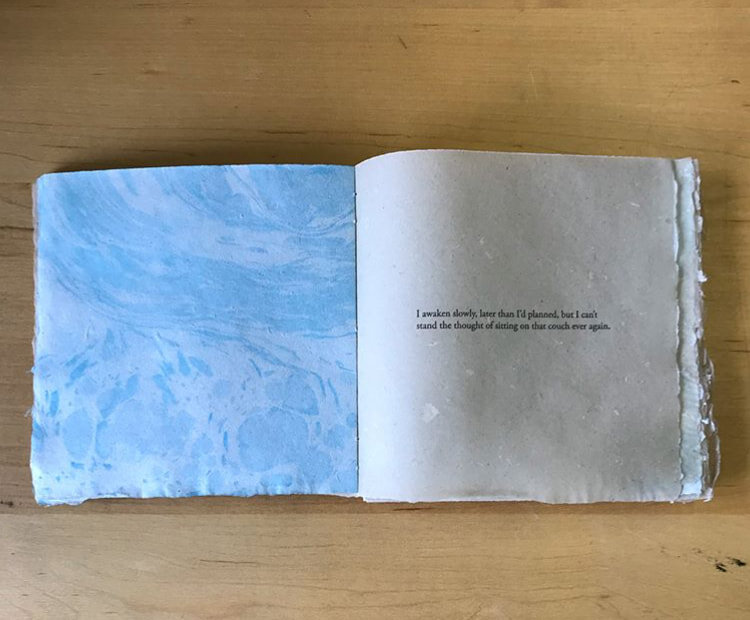
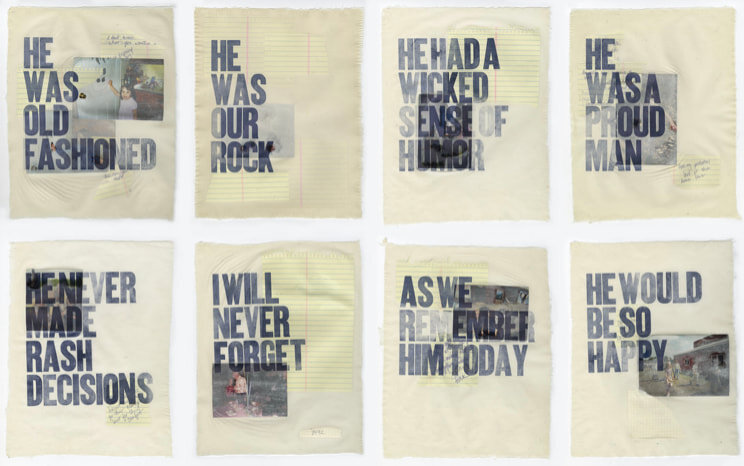
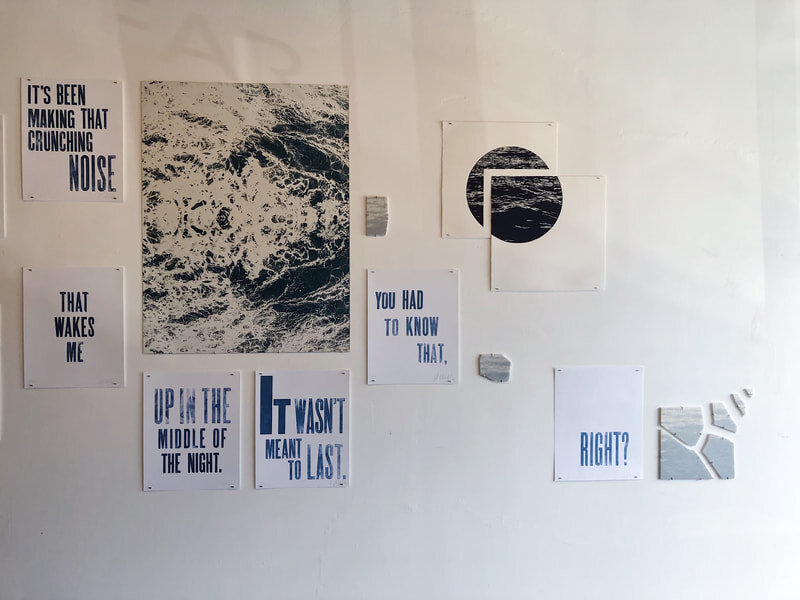
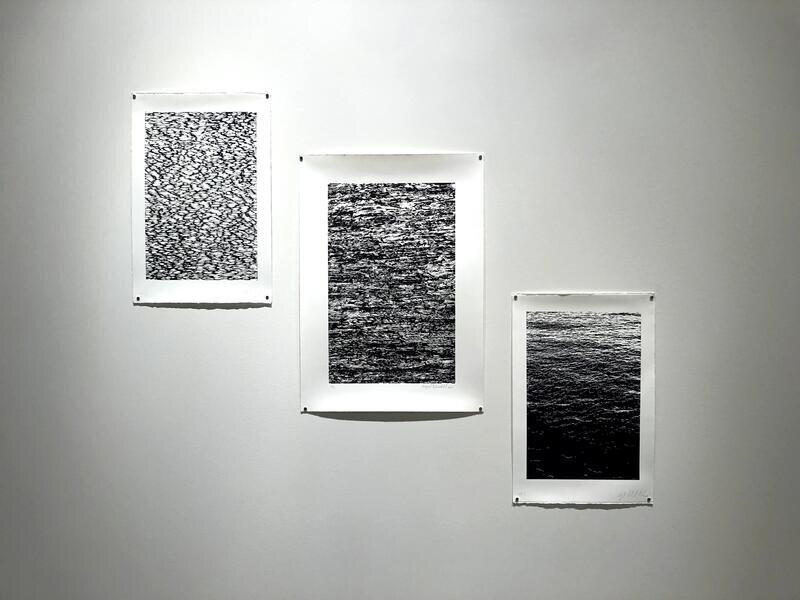
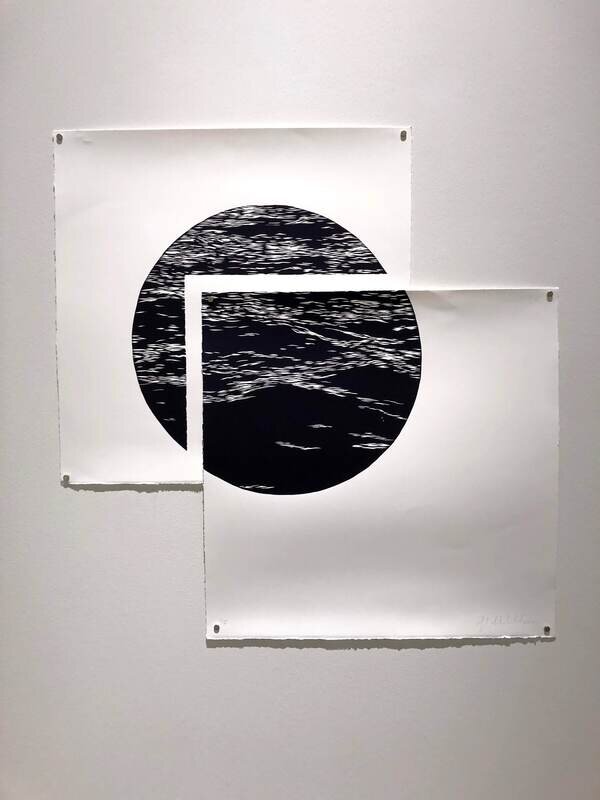
September 28 2019 - January 10 2020
Guest Curated by Beth Sheehan
Presented by Small Press Fair Fort Lauderdale at FAR Gallery
An exhibition exploring psychological landscapes through the work of Beth Sheehan, Kyle Holland, and Ingrid Schindall.
“It is in our stories that we locate places most powerfully.” - Kent C. Ryden
Psych Land features the work of Kyle Holland, Ingrid Schindall, and Beth Sheehan, all of whom use printmaking, papermaking, and book arts to explore ideas of place and personal narrative. A space becomes a place when imbued with memory and experience. It is often through place that we interpret ourselves and relate to others. Within the long history of art, physical landscape has frequently been used to express the psychological landscape of an era, culture, or individual—maybe most obviously seen in the example of Van Gogh’s descent into madness. The works in this exhibition start to unpack relationships between a sense of place and identity through the lens of the psyche.
Kyle Holland’s work blends physical landscape and psychological landscape as the ideas of hegemonic masculinity become a threat to self. Holland’s Southern upbringing largely influences his work with imagery pulled from hunting culture and the expectation that perfect masculinity is defined by risk, effortless strength, confidence, and superiority. Holland explores his struggle fitting into this rigid definition of manliness through unsettling, barren landscapes that fail to camouflage a vulnerable deer-like figure.
Ingrid Schindall’s work and practice often call to the oceans of her Florida upbringing. Drawing on her past, the artist’s work offers a look into thought and memory, delivered in a way that is reminiscent of meandering contemplation or the ebb and flow of ocean tides. Particularly within Schindall’s artist books there is a distinctly cerebral experience as text and image flow effortlessly between action and reflection. The scene is set by tactility and earthy visuals, only interrupted by the waves of thought that dissolve the present for a moment. Often within the process of making, Schindall allows headspace and physical space to join further. In one instance, even pulling paper in ocean water so the salt and sand become part of the pages.
Beth Sheehan’s use of place and personal narrative finds a voice in nostalgia. The artist lacks the ability to retain episodic memory and has thus become obsessed with archiving and altering the fragmented versions of her past. Often appropriating strangers’ family photos as well as her own, Sheehan blurs the line between remembrance and resemblance. She refers to this feeling of familiarity for somewhere you’ve never been as “borrowed nostalgia.” By allowing herself and the viewer to question the “truth” of the memories she presents in her work, Sheehan suggests that truth might not be as important as perceived reality.

